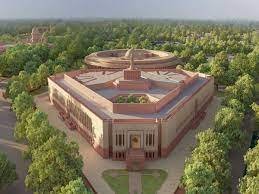
The Winter Session of Parliament is scheduled to commence on December 4 and run until December 22, featuring 15 sittings over 19 days. Union Minister of Parliamentary Affairs, Pralhad Joshi, expressed anticipation for discussions on legislative business and other important matters during the session. This session holds particular significance as it marks the first full session in the new Parliament building.
The decision to defer the Winter Session to December is attributed to the ongoing elections in five states – Madhya Pradesh, Rajasthan, Chhattisgarh, Telangana, and Mizoram. The results of these assembly elections are slated to be announced on December 3, paving the way for Parliament’s winter proceedings.
Among the key legislative matters expected to be addressed during the session are three crucial bills aimed at replacing the Indian Penal Code (IPC), Code of Criminal Procedure (CrPC), and the Evidence Act. Additionally, the bill concerning the appointment of the Chief Election Commissioner and Election Commissioners may find consideration in this session.
Introduced during the Monsoon Session, the bill related to the election commissioners’ status has been a point of contention, with the government seeking to align their status with that of the cabinet secretary, equalizing it to that of a Supreme Court judge. Despite being introduced earlier, the government did not push for its passage in the special session amid opposition protests.
The upcoming Winter Session follows a historic Special Parliament Session held in September, where proceedings shifted from the old building to the new one. During that session, the long-awaited women’s reservation bill was successfully passed.
Sources By Agencies

